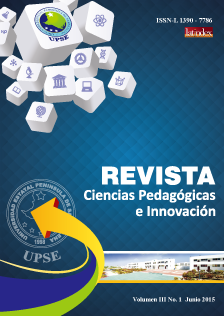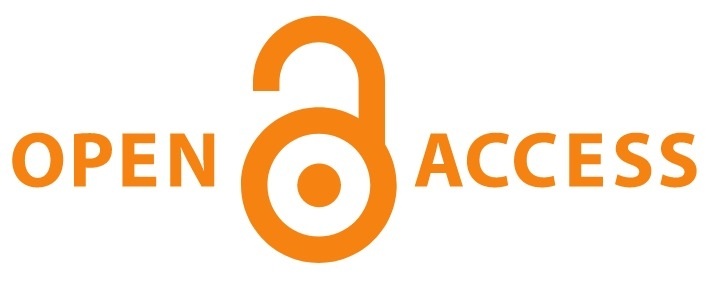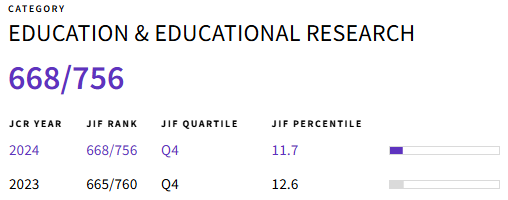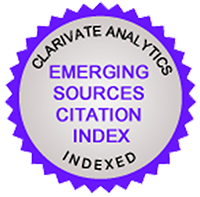El razonamiento lógico matemático en los estudiantes del séptimo grado de la escuela “Manuela Cañizares” cantón Salinas, 2014 - 2015
DOI:
https://doi.org/10.26423/rcpi.v3i1.12Palabras clave:
razonamiento lógico, razonamiento matemático, aprendizaje matemático, pensamiento lógico, razonamiento deductivoResumen
El presente trabajo se orienta a investigar el nivel de conocimientos en el aula y aplicación de las destrezas cognitivas en el contexto social acerca de la comprensión de las matemáticas, en los estudiantes del séptimo grado de la Escuela de Educación Básica Mixta Fiscal “Manuela Cañizares” de la parroquia Santa Rosa, cantón Salinas, provincia de Santa Elena; los resultados encontrados, para el desarrollo del pensamiento lógico matemático en el proceso de enseñanza-aprendizaje, están fundamentados en la aplicación de una evaluación y encuesta, las cuales permitieron valorar el nivel de razonamiento lógico matemático y las dificultades en los estudiantes, tomando como base la teoría planteada por Jean Piaget y los planteamientos expuestos por el Ministerio de Educación (MinEduc), sobre el desarrollo de las destrezas cognitivas. Los aspectos más sustanciales que comprenden este trabajo de investigación son: el pensamiento numérico, espacial, métrico, aleatorio y manejo de dinero, ya que estas tienen relación directa con la psicología, gramática, matemáticas, teoría del conocimiento y epistemología, por su rigor, exactitud, solidez, universalización y sistematización. El estudio es de carácter descriptivo de orden cualitativo y cuantitativo, desarrollado con un diseño expost facto, y la observación directa de las actividades escolares del estudiantado y los maestros. Como resultados de la investigación se puede afirmar que la escasa preparación de los maestros en la aplicación de las destrezas cognitivas en el proceso de enseñanza de las matemáticas, ha provocado que los estudiantes tengan un bajo nivel de razonamiento lógico matemático.
Descargas
Referencias
Piaget, J. Introducción a la epistemología genética.: El pensamiento matemático. Buenos Aires: Paidós; (1975) p. 111.
MinEduc. Actualización y fortalecimiento de la educación. La importancia de aprender matemáticas; (2010) pág. 5
Cárdenas, H. Importancia de las Ntic en las gestiones académicas de los docentes (trabajo de maestría. Universidad de Guayaquil); (2008) pág. 50.
Cárdenas, H. Importancia de las Ntic en las gestiones académicas de los docentes (trabajo de maestría. Universidad de Guayaquil); (2008) pág. 54
Araujo Fiallos S. Genios: Matemáticas por Competencias. Grupo Norma, Segunda edición, Ecuador (2008).
Araujo Fiallos S. Matemática Interactiva. Grupo Norma. Quinta edición. C.P. 06020 México D.F. (2008)
Beltrán Rodríguez J.. Resúmenes de Investigación. Quito, Ecuador (1994).
Castro Puche R. Didáctica de la Matemática. Eco ediciones. primera edición, Bogotá, Colombia (2011)
Carriazo Salcedo M. Cursos para docentes: ¿Cómo hacer el aprendizaje significativo? Grupo Santillana S.A. Quito, Ecuador (2009).
Círculo de lectores S.A. Equilibre su inteligencia. (Sociedad unipersonal). Barcelona (2003).
L.O.E.I 2013, Quito – Ecuador.
MinEduc. Matemática 4: Cuaderno de Trabajo para estudiantes. Editorial Don Bosco. Segunda edición. Quito, Ecuador (2011).
P.N.B.V 2014 -2017, Quito – Ecuador.
Soler Francisco, Fajardo-Reinaldo Núñez Fundamento matemáticos/Eco ediciones, Tercera edición, Bogotá, Colombia (2009).
Sánchez, Amestoy A.. Sistema Nacional de Nivelación y Admisión. tomo I: Organización del pensamiento. Quito, Ecuador (2012).
Sánchez, Amestoy A.. Sistema Nacional de Nivelación y Admisión. tomo II: Organización del pensamiento. Quito, Ecuador (2012).
Sánchez, Margarita A. Aprender a pensar 2: Organización del pensamiento: cuaderno de trabajo. Editorial Triallas. México, D.F. (2001)
Descargas
Publicado
Número
Sección
Licencia
El titular de los derechos de autor de la obra, otorga derechos de uso a los lectores mediante la licencia Creative Commons Atribución-NoComercial-CompartirIgual 4.0 Internacional. Esto permite el acceso gratuito inmediato a la obra y permite a cualquier usuario leer, descargar, copiar, distribuir, imprimir, buscar o vincular a los textos completos de los artículos, rastrearlos para su indexación, pasarlos como datos al software o usarlos para cualquier otro propósito legal.
Cuando la obra es aprobada y aceptada para su publicación, los autores conservan los derechos de autor sin restricciones, cediendo únicamente los derechos de reproducción, distribución para su explotación en formato de papel, así como en cualquier otro soporte magnético, óptico y digital.

















